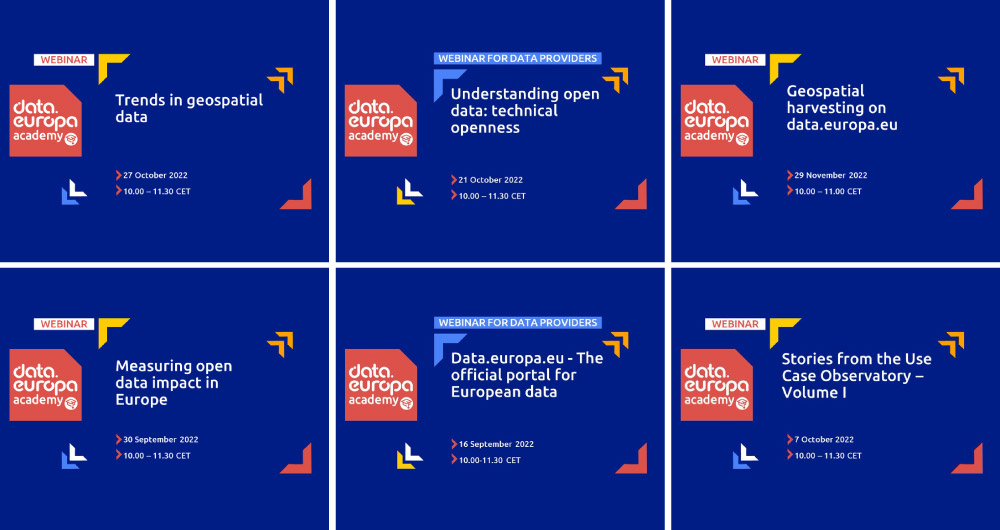13 posts found
The European Union's Guide to the Deployment of the Data Governance Act: public sector intermediary services
The Data Governance Act (DGA) is part of a complex web of EU public policy and regulation, the ultimate goal of which is to create a dataset ecosystem that feeds the digital transformation of the Member States and the objectives of the European Digital Decade:
A digitally empowered population and h…
How to present open data accessibly
Open data should be inherently accessible, meaning it must be available for free and without barriers that could restrict access and reuse. Accessibility is a fundamental and complex issue because it means that these data sets should not only be available in reusable formats but also that anyone sho…
Big Data Test Infrastructure: A free environment for public administrations to experiment with open data
The Big Data Test Infrastructure (BDTI) is a tool funded by the European Digital Agenda, which enables public administrations to perform analysis with open data and open source tools in order to drive innovation.
This free-to-use, cloud-based tool was created in 2019 to accelerate d…
Data intermediaries and their role in the Data Governance Act
Data is a key part of Europe''s digital economy. This is recognised in the Data Strategy, which aims to create a single market that allows free movement of data in order to foster digital transformation and technological innovation. However, achieving this goal involves overcoming a number of obstac…
Challenges and uncertainties for the deployment of the Data Economy in Europe
Four years after the publication of the European Commission's Communication 'A Data Strategy', the European Commission has published a Communication on the European Commission's 'Data Strategy'A Data Strategy' (February 2020) (February 2020) - setting out the broad outlines of the broad outlines of…
New Year's resolution: Apply the UNE data specifications in your organisation
As tradition dictates, the end of the year is a good time to reflect on our goals and objectives for the new phase that begins after the chimes. In data, the start of a new year also provides opportunities to chart an interoperable and digital future that will enable the development of a robust data…
European data regulation faces the challenge of a harmonized application that will boost data sharing
Two of the European Union's most relevant data regulations will soon articulate the legal contours that will delineate the development of the data economy in the coming years. The Data Governance Act (DGA) has been fully applicable since September 24, 2023, while the wording of the Data Act (DA) was…
European Webinars: Open Data to Drive the Economy and Democracy in Europe
Open data is a highly valuable source of knowledge for our society. Thanks to it, applications can be created that contribute to social development and solutions that help shape Europe's digital future and achieve the Sustainable Development Goals (SDGs).
The European Open Data portal (data.europe.e…
The dataspaces starter kit
A data space is a development framework that enables the creation of a complete ecosystem by providing an organisational, regulatory, technical and governance structure with the objective of facilitating the reliable and secure exchange of different data assets for the common benefit of all actors i…
From the legal perspective of open data to the importance of its re-use: 15 data.europa.eu webinars to broaden your knowledge
Over the past year, the academic section of data.europa.eu expanded its open data training offer by publishing new conferences, courses and workshops. Thus, data.europa.academy shared a total of 15 webinars related to open data, data spaces and other topics and technical issues around the data econo…









